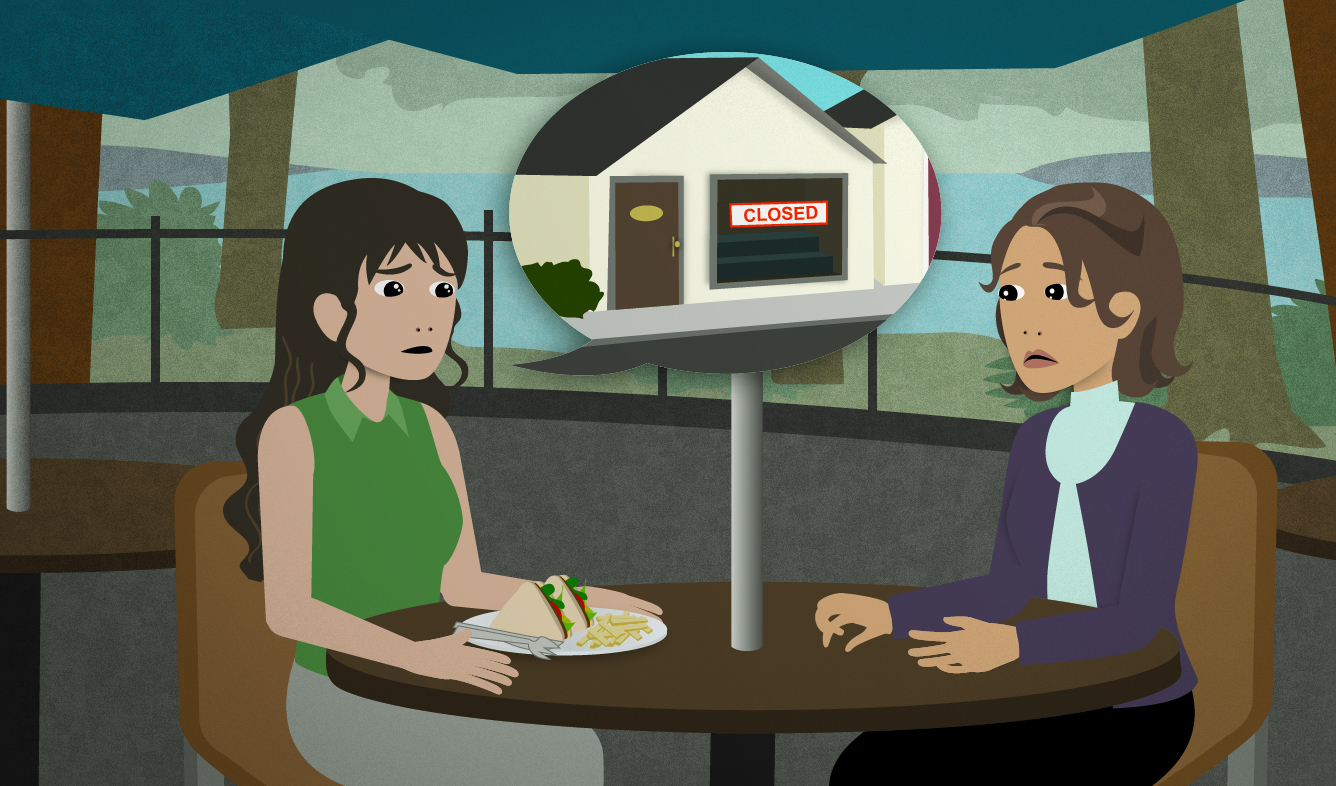“Things started out well, but we were never able to really gain traction.”
You owned a store for a while, but you had to shut it down. Someone is asking you why, so you explain that you couldn't get enough customers.
Things started out well, but we were never able to really gain traction.
Want Video and Sound? Follow us on YouTube

be able to (do something)
"Be able to" means "can". But you can't use "can" with "might". So instead you say "might be able to".
You also use "be able to" when talking about things that you successfully did in the past:
I was able to contact Jesse, and he said he would send them to us right away.
Were you able to find out how much it costs?
And you use "be able to" with other modals like "should", "will", "may", etc."
He should be able to help you.
I won't be able to finish it until some time next week.
really
"Really" means "very" but is better for casual conversation. "Very" is correct in written English, but can sound a little formal and old-fashioned in spoken conversation.
Also, "very" can only be used to modify an adjective:
It's very small.
I'm very tired.
"Really" can be used for adjectives as well as verbs:
It's really small.
I'm really tired.
I really wanted to go
Do you really think so?
Things (are good / bad / OK)
The phrase "Things are ___" is a way to talk about a general situation:
A: How's it going?
B: Things are good.
This just means that life in general is going well for the speaker.
You can also use all of these phrases:
How are things?
Things aren't going so well lately.
Things started out OK, but lately it's been tough.
(something) started out (adjective/adverb)
When you're talking about an event that takes some time, you can describe the beginning separately from the rest of the event. The phrase "___ started out ___" is useful for this.
The evening started out fine, but then at dinner we started to argue.
You can also use a verb with "start out":
I started out thinking that I had a chance to win, but after the first round I knew I had no shot.
gain traction
To understand the word "traction", think of a car that's driving in slippery mud. The wheels of the car might spin without moving the car forward. In this situation, you would say that the wheels "have no traction".
When people use the word "traction" to talk about a business, they mean the ability of the business to gain customers. So this sentence:
We're starting to gain traction.
...means that the business is starting to become popular and get customers.
